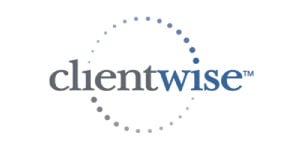Financial Advisors: Questions to Enhance Your Succession Planning
By
Ray Sclafani | June 24, 2015
 It takes very disciplined thinking to fully consider your succession planning strategy. Often, succession planning is confused with continuity planning. While continuity planning is an important piece of the puzzle if you plan to transition the leadership of your business, it does not consider the future of your business with the same thoroughness as succession planning.
It takes very disciplined thinking to fully consider your succession planning strategy. Often, succession planning is confused with continuity planning. While continuity planning is an important piece of the puzzle if you plan to transition the leadership of your business, it does not consider the future of your business with the same thoroughness as succession planning.The best way to approach succession planning is to begin with the end in mind. Create a vision for the future of your business through which this this succession plan will take you. If you know where you want to end up, it’s much easier to determine how to get there. This is why we’ve applied The ClientWise Outcome Frame™ to our thinking around succession planning, which is comprised of the questions below. Answering these questions will help you thoroughly consider your approach to succession planning. They can also be applied to thinking about other future-oriented goals as well.
1. What do you want as a final outcome for your business or your retirement? How is this stated in the positive?
2. What will having this outcome do for you or your business? What is the purpose of your outcome? The intent?
3. How will you know when the outcome is successful? What will change and how will it show up?
4. Who, what, when, where and why? In what context do you want your outcome? When do you want results? With whom will you be working, or who will come in to fill in the gaps if you aren’t continuing to work?
5. What effects will the outcome have on your organization, people, vendors, products, customers, etc.? What will getting your outcome provide to you?
6. Are there any blocks, challenges, or organizational restrictions that could create difficulty in reaching your outcome? What are the barriers?
7. What resources do you have or need in order to get your outcome? What capabilities are necessary parts of your desired outcome?
8. Is getting your outcome within your control?
These questions may seem very preliminary at first glance. In this envisioning process, you will do a lot of the work necessary to figure out how to achieve your succession planning goals. Spend time on each question. Run the answers by your business partners. Perhaps even show your most trusted clients depending on your relationships with them. These individuals will be affected by your succession planning.
Powerful coaching questions from this article:
- While you may have a somewhat clear picture of your future, how much careful consideration have you actually given this vision?
- What, beyond your eventual retirement, is driving your vision for the future of your business?
- How do other extenuating factors play into this vision of your future business?
Topics: Business Development Succession Planning Business Planning


